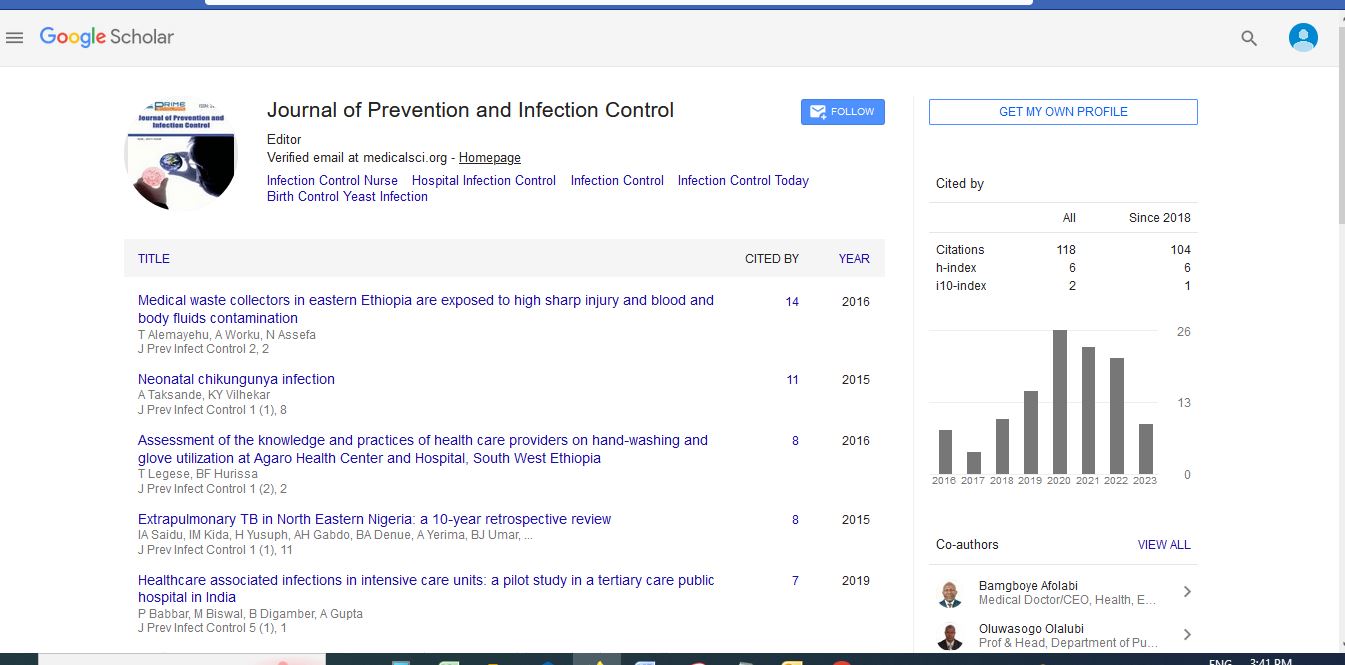Commentary - (2024) Volume 10, Issue 3
The Evolution and Importance of Healthcare: Ensuring Access and Quality
Qiang Aki*
Department of Medical Science, Tohoku University, Japan
*Correspondence:
Qiang Aki,
Department of Medical Science, Tohoku University,
Japan,
Email:
Received: 02-Sep-2024, Manuscript No. IPJPIC-24-21349;
Editor assigned: 04-Sep-2024, Pre QC No. IPJPIC-24-21349 (PQ);
Reviewed: 18-Sep-2024, QC No. IPJPIC-24-21349;
Revised: 23-Sep-2024, Manuscript No. IPJPIC-24-21349 (R);
Published:
30-Sep-2024, DOI: 10.36648/2471-9668-10.3.24
Description
Healthcare is a fundamental pillar of human well-being,
encompassing a range of services aimed at maintaining and
improving health, preventing disease, and managing illness.
As societies evolve, so too does the complexity and scope
of healthcare systems. This article explores the evolution of
healthcare, its significance, current challenges, and the future
directions necessary to ensure comprehensive and equitable
care for all. Healthcare systems have undergone remarkable
transformations over the centuries. Historically, healthcare
was often limited to traditional remedies and practices passed
down through generations. The rise of modern medicine began
in the 19th and 20th centuries, with significant advancements in
medical science, technology, and public health. The development
of vaccines, antibiotics, and sophisticated diagnostic tools
revolutionized healthcare, drastically improving survival
rates and quality of life. Innovations such as electronic health
records, telemedicine, and personalized medicine have further
transformed the landscape, offering new ways to diagnose,
treat, and manage health conditions. Preventive care, including
vaccinations, screenings, and lifestyle counselling, plays a crucial
role in averting the onset of diseases and reducing the burden on
healthcare systems. By identifying risk factors early, healthcare
services can help individuals make informed choices that promote
long-term health. Effective healthcare management ensures
that individuals with chronic conditions receive appropriate
treatment, reducing complications and improving their quality
of life. Chronic diseases such as diabetes, hypertension, and
asthma require ongoing care and coordination among various
healthcare providers. Healthcare systems are also responsible
for promoting overall health and wellness. A well-functioning
healthcare system contributes to economic stability by reducing
healthcare costs associated with preventable diseases, improving
productivity, and ensuring a healthier workforce. Disparities in
healthcare access remain a significant issue. Socioeconomic
factors, geographic location, and insurance coverage can all
affect an individual’s ability to receive quality care. Addressing
these inequities is essential for achieving universal healthcare.
The rising cost of healthcare is a growing concern, affecting both
individuals and healthcare systems. High medical expenses,
including out-of-pocket costs for treatments and medications,
can create financial barriers to care. Ensuring high-quality and
safe care is a continuous challenge. Variability in care standards,
medical errors, and patient safety incidents highlight the need
for ongoing quality improvement initiatives and robust safety
protocols. The healthcare workforce faces challenges such
as shortages, burnout, and the need for continuous training.
Addressing these issues is critical for maintaining an effective
and resilient healthcare system. Initiatives aimed at improving
healthcare access and equity, such as expanding insurance
coverage and increasing availability of care in underserved areas,
are crucial for ensuring that everyone benefits from quality
healthcare. Embracing technological advancements, including
telehealth, artificial intelligence, and health data analytics, can
enhance care delivery, improve patient outcomes, and streamline
healthcare operations. Strengthening preventive care initiatives
can reduce the incidence of chronic diseases and lower overall
healthcare costs. Public health campaigns and community-based
programs can support this effort. Interdisciplinary collaboration
among healthcare providers, researchers, and policymakers is
vital for addressing complex health issues and advancing medical
knowledge. Healthcare is a dynamic and essential aspect of
modern life, integral to individual and societal well-being. While
challenges remain, ongoing advancements and a focus on access,
quality, and innovation hold the promise of a more equitable and
effective healthcare system.
Acknowledgement
None.
Conflict Of Interest
None.
Citation: Aki Q (2024) The Evolution and Importance of Healthcare: Ensuring Access and Quality. J Prevent Infect Control. 10:24.
Copyright: © 2024 Aki Q. This is an open-access article distributed under the terms of the Creative Commons Attribution License, which permits unrestricted use, distribution, and reproduction in any medium, provided the original author and source are credited.

